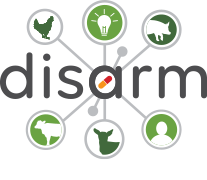323 Risk for the development of Antimicrobial Resistance AMR due to feeding of calves with milk containing residues of antibiotics (Research report – EFSA Panel on Biological Hazards – 2016)
Click here for resource
In Significant Impact Groups: Other
Species targeted: Dairy;
Age: Young;
Summary:
This reports assess both the risk for the development of antimicrobial resistance (AMR) due to feeding on farm of calves with colostrum containing residues of antibiotics; and risk for the development of AMR due to feeding on farm of calves with milk of cows treated during lactation with an antibiotic and milked during the withdrawal period. It also proposes options to limit the risk of AMR derived from such practices. Treatment of dairy cows during the dry period and during lactation is common. Milk from cows receiving antimicrobial treatment during lactation contains residues during the treatment and withdrawal period, and this milk will lead to increased faecal shedding of antimicrobial-resistant bacteria by calves. A range of possible options exist for restricting the feeding of such milk to calves. b-Lactamases can reduce the concentration of b-lactams. Options to limit these bacteria in raw milk or colostrum are based on thermal inactivation.
Where to find the original material: https://efsa.onlinelibrary.wiley.com/doi/full/10.2903/j.efsa.2017.4665; https://doi.org/10.2903/j.efsa.2017.4665
Country: Not applicable (European Commission)
